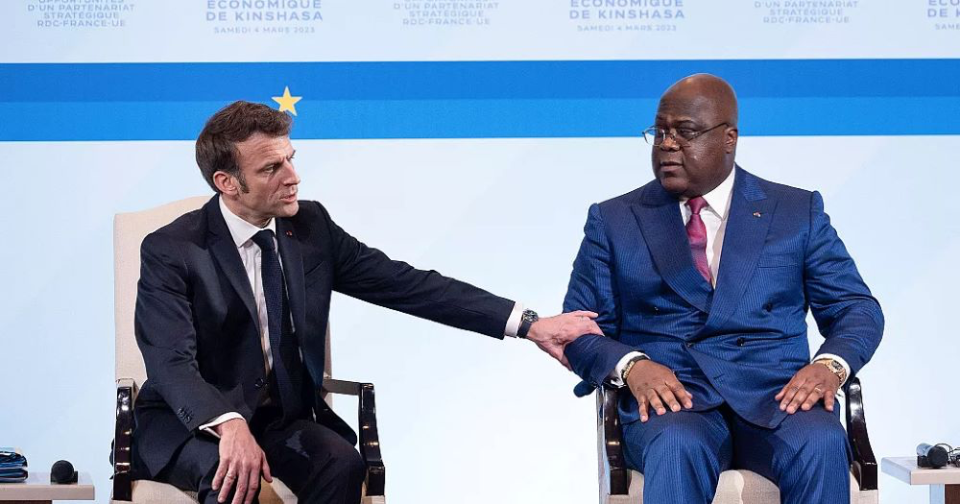The French government, on 20th February 2024, publicly called on the Democratic Republic of Congo (DRC) to discontinue its associations with terrorist factions, particularly emphasizing the Democratic Forces for the Liberation of Rwanda (FDLR).
France’s declaration, shared via the website of the Ministry of Foreign Affairs, voiced significant apprehension over the escalating situation in the DRC’s eastern region, especially around Goma and Sake in North Kivu, pointing out the dangers faced by civilian populations.
The statement underscored France’s demand for an immediate end to hostilities by all militant groups and stressed the necessity for the DRC’s military to fulfill its obligations by halting any collaboration with the FDLR.
This terrorist group was formed by individuals responsible for the 1994 Genocide against Tutsis in Rwanda.
France reiterated its support for regional mediation efforts aimed at peacefully resolving the conflict and called for the M23 to stop fighting and relinquish control of occupied territories, adhering to the Luanda and Nairobi process agreements.
This appeal was also echoed by Hadja Lahbib, Belgium’s Foreign Minister, who recently urged the DRC to sever connections with the FDLR, a group condemned by the UN as a terrorist organization due to its genocidal ideology and threat to Rwandan security. Lahbib championed a political solution to the conflict in eastern DRC, where Congolese forces and allies are battling the M23.
Jean Pierre Bemba, the Congolese Defense Minister, recently revealed that the DRC’s army operates in conjunction with various groups, including the FDLR, Nyatura, Mai-Mai, and international forces such as MONUSCO and SADC, highlighting the complexity of military operations in the region.
Lahbib emphasized the critical need to terminate any cooperation with the FDLR and called for an end to hate speech and violence, reminding that military interventions are not a viable solution to the conflict.
Rwanda has long urged the DRC to end its cooperation with the FDLR, which has been implicated in attacks on Rwandan soil. Despite denials of such collaboration, there were directives in November 2023 for the Congolese military to disengage from the terrorist group, yet the integration of genocidal militia members into the DRC army persisted.
The resurgence of the M23 group in November 2021, claiming to protect civilians from persecutions by genocidal militias like the FDLR, adds to the complexity of the conflict. This group has been accused of fostering violence and genocidal ideology against Tutsi communities in the area.
Efforts for regional peace through the Nairobi and Luanda processes have faced challenges, with ongoing conflicts edging closer to Goma. The Belgian minister highlighted the urgency of revitalizing regional diplomacy and constructive engagement in U.S.-led mediation.
With the UN and the United States cautioning against the risk of genocide fueled by hate speech and violence against Tutsi communities in eastern DRC, there is a pressing call for the international community to intensify efforts to counteract these hate speeches and support an effective justice system to address them.
SOURCE: IGIHE


